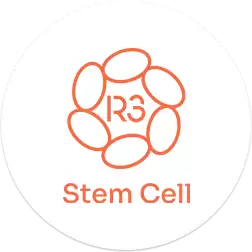 Immune system disorders are medical conditions that either result in the immune system’s abnormally low or extremely high activity. In the case of over-activity, the body attacks tissues, limiting the body’s ability to fight off invaders and resulting in a lot more vulnerability.
Immune system disorders are medical conditions that either result in the immune system’s abnormally low or extremely high activity. In the case of over-activity, the body attacks tissues, limiting the body’s ability to fight off invaders and resulting in a lot more vulnerability.
There are different types of auto-immune disorders, as well as various medical procedures for treating them. However, we will be considering rheumatoid arthritis and how effective stem cell therapy is in addressing this disorder.
WHAT IS RHEUMATOID ARTHRITIS?
Rheumatoid Arthritis is a chronic auto-immune condition in which a body’s immune system produces antibodies that typically attach to the linings of joints. Immune system cells attack these joints, resulting in swelling, severe pains, and inflammation.
It is common for inflammation to extend to the cartilage that encompasses the joint ends, resulting in irreversible damage and functional loss. In fact, if left untreated, rheumatoid arthritis further damages other tissues, including the heart, skin, lungs, kidneys, and eyes.
WHAT IS RHEUMATOID ARTHRITIS?
Over time, several genetic and environmental factors have been studied by researchers to determine specific risk factors that could suggest a person’s developing rheumatoid arthritis. First, there is a higher likelihood that the risks of this disease increase with age. While rheumatoid arthritis can begin at any age, it is more prevalent among adults in their sixties. It is also higher in women than men, especially those with a history of live births. Other risk factors include genetics, inherited traits, smoking, early life exposures, and obesity.
Rheumatoid Arthritis patients experience varying severity regarding signs and symptoms. They could experience flares, which occur when symptoms get worse, or remission when the symptoms ease up. Some symptoms of rheumatoid arthritis include;
- Joint pains
- Weight Loss
- Weaknesses
- Fatigue and tiredness
- Fever
- Swelling and stiffness in several joints
STEM CELL TREATMENT FOR RHEUMATOID ARTHRITIS
Prior to stem cell therapy, rheumatoid arthritis was and still is effectively treated and managed with medications and other self-management strategies. Regarding medications, disease-modifying antirheumatic drugs are employed to slow down the disease and prevent joint deformity. Self-management strategies help reduce pain and improve joint function.
However, like other auto-immune conditions, stem cells have also been introduced as an effective way to reduce pain and inflammation while regenerating damaged tissues. The unparalleled ability of stem cells to differentiate into any cell in the body makes it an effective therapy for repairing damaged tissues throughout the body.
Mesenchymal stem cells have been touted as the most effective therapy for rheumatoid arthritis. This type of stem cell can develop into cartilage and bones and, to some extent, suppress the immune system and reduce the body’s inflammatory response. All these make mesenchymal stem cells a promising treatment option for conditions such as rheumatoid arthritis.
Stem cell therapy significantly benefits rheumatoid arthritis patients by directly targeting the inflammations. They also have the intrinsic property to regenerate damaged tissues and balance the immune system. R3 Stem Cell offers rheumatoid arthritis patients an effective stem cell therapy plan to help them recover and live healthier lives.

Dr. David Greene
MD, PhD, MBA
Dr. David Greene, MD, PhD, MBA, is a pioneering leader in regenerative medicine and healthcare marketing. As a residency and fellowship-trained orthopedic surgeon, Dr. Greene transitioned from clinical practice to become the founder and CEO of R3 Stem Cell and US Lead Network, where he has revolutionized patient care and medical practice growth through innovative therapies and digital marketing strategies. He has authored two influential books on healthcare internet marketing, ranks among the top expert authors globally, and has been featured on the cover of Corporate Vision magazine for his impact on global regenerative therapies. Beyond his professional achievements, Dr. Greene is passionate about education, compassion, and continuous innovation.

Sorry, the comment form is closed at this time.